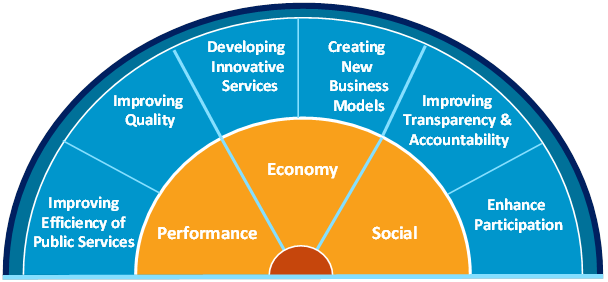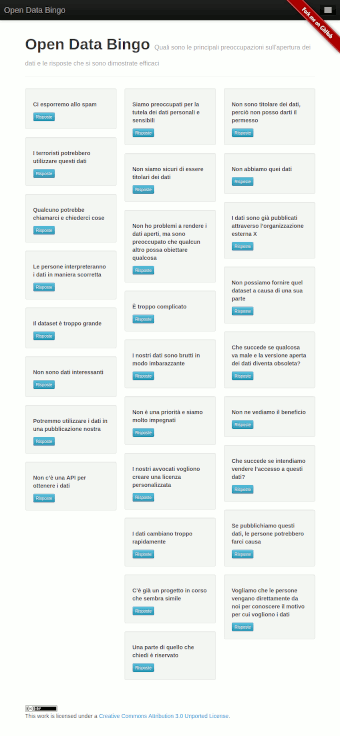It's 2020. Why are you not opening up data yet? Bingo!
When I started advocating for and building open data eleven years ago, the world was a very different place. Brazil had neither open data portal nor policy, and even the countries that pioneered the open data agenda were just beginning.
Now we can see a very different landscape. Most nation states have joined the open data agenda and feature a one stop shop portal where people can download a plethora of data about almost any subject, including the most important ones. Many local governments do so, too.
It may seem so that public sector managers have been since then mostly convinced already of the reasons for opening up data, be they for economic growth, job creation, public sector cost savings and efficiency, improvement of public and private services, a smarter way of addressing social challenges, improving government transparency and accountability, or even unforeseen positive effects.

However, as surveys such as the Open Data Index, Open Data Barometer and Open Data Inventory have shown, there are still many gaps in important and potentially useful data that should be available, but isn’t. We’re still a long way from living in an open data utopia. For more on this point, please see my previous post “On the State of Open Data: does it face an identity crisis?”.
The reality is that open data has not really taken off with politicians. Rarely does one acknowledge the existence of the agenda, let alone set it as a political priority for economic development. That is despite the fact that, the more open data is available, the more it enables the private sector to leverage emerging artificial intelligence applications and innovate in products and services.
However, for people who work in the public sector and for people who often try to get data from governments by using access to information laws, it is often the case that access to data will be denied or hindered by managers using the same old excuses that we have been getting for many years.
The Open Data Bingo
A set of numbers that you sit while waiting for each one to be announced. Bingo! This is probably what has inspired the name of the original Open Data Bingo. It’s just a chart of the most common excuses people give for not opening up data. Then, it was improved upon by a few people, among them Christopher Gutteridge (University of Southampton) and Alexander Dutton (University of Oxford), by collaborating on a Google Docs document. It then took the Italian group Spaghetti Open Data, and Francesco Minazzi in particular, to adapt the Bingo to the Italian open data landscape and produce a website: “Il bingo delle scuse”.

Some time later, open data activist and current Director of the Open Knowledge Foundation chapter in Brazil, Fernanda Campagnucci, translated some of the content and adapted it to the Brazilian reality, drawing upon her own experience in opening up data in the local administration of the city of São Paulo. She put up a website online with this version. She then mentioned it while being a guest in an episode of the Pizza de Dados Podcast, and that’s how I first heard of the open data bingo.
When considering the arguments for the adaptation of this content for many different countries and cultures, it is remarkable how similar the barriers for opening up data are among them.
bingo.dadosabertos.social
I then finished the translation and adaptation to the Brazilian context of the rest of the questions that were still in Italian, and gave it a fancy domain name. Hence, bingo.dadosabertos.social. I hope this helps the Brazilian open data community argue more effectively to obtain data from public administrations. Let’s then try to fill those gaps in important data that should be, but is not yet open!
Just as this project did not start with me, it should not finish here. It is completely open licensed and available on Github. So fork it, create your version, and send me a pull request if you know Portuguese and has an useful argument against the excuses not to open up data. If you’re not familiar with Github, you can leave your comment on the dadosabertos.social forum as well. If you know the context of Brazilian laws, institutions and data landscape, all the better! Your contributions will be most welcome.